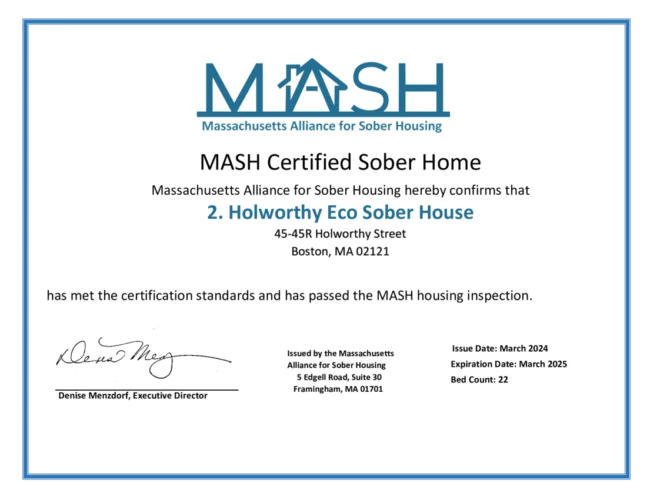
Drug use can potentially fracture relationships, bringing about conflicts, deep-seated mistrust, and communication breakdowns. Individuals involved with drugs may become emotionally unavailable, neglecting essential family responsibilities, leading to household tensions and mistrust. The consequences of not living a drug-free life span from deteriorating health and strained family dynamics to financial hardships and social isolation. Transitioning to a drug-free lifestyle after addiction is a multifaceted process typically involving undergoing medical detoxification, therapy, and support groups. Recognizing and avoiding triggers that tempt substance use is crucial, as is immersing oneself in positive and constructive activities.
Practice Healthy Living
- After you drink alcohol, Volpicelli explains that the small molecules inside it get absorbed by your gut.
- By taking things one day at a time, day after day, you can suddenly accomplish more than you ever thought was possible.
- Developing healthy habits to cope with stress instead of turning to alcohol will help you live a long and healthy life with better social and personal relationships.
- This article will explore drinking habits, the potential health benefits of drinking in moderation, the risks, and other effects of alcohol on the body.
- Substance abuse can take a significant toll on relationships, both with romantic partners and with family and friends.
- There are countless compelling stories of individuals reclaiming their lives, and in the process, reinforcing the profound benefits of a drug-free existence.
- There are also social aspects of going alcohol-free that you may not be expecting.
Living without drugs isn’t just about dodging these harrowing statistics or potential legal troubles. It’s a deep commitment to overall health, longevity, and quality of life. But leaky gut is a physiological process, not a formal medical diagnosis. It’s something that fluctuates constantly because of factors such as stress, infections and the food we eat. The brain also becomes more sensitive to the effects of alcohol as people get older, Moore says.
What are some long-term effects of drug abuse?
- The Centers for Disease Control and Prevention (CDC) classifies this as drinking five or more drinks on one occasion for men and drinking four or more drinks on one occasion for women.
- The Oxford House model offers a “social model” recovery philosophy (Kaskutas, 1999) that emphasizes peer support for sobriety and shared, democratic leadership in managing house operations.
- When you quit drinking, you’ll probably notice that the colds, flu, and other illnesses you always seem to catch happen less often.
- Ending it doesn’t mean the other person is “bad.” This is not assigning blame—only maintaining well-being.
- However social support, such as connecting with others in recovery, is one of the best predictors of success.
Due to prolonged alcohol intake, the liver starts to lose its ability to regenerate and that can cause serious permanent damage to it, often resulting in complete failure. Quitting drinking proves to be a blessing for the liver because if a person stops drinking before any permanent damage to the liver, it starts to heal and gain better health. The well-being of a person’s vital organs can be largely affected by the choices they make regarding alcohol use.
Addiction Treatment Programs
Daily, many also report better moods, improved sleep patterns, and an enhanced sense of purpose, all contributing to an uplifted daily well-being and a more fulfilling life experience. Improved decision-making, heightened awareness, and a sharper memory become apparent. Abstaining from benefits of living alcohol free drugs significantly reduces mood swings, feelings of anxiety, and depressive symptoms, fostering resilience and a more balanced mental state. But I worry that people are getting so caught up in the claims surrounding leaky gut that they may miss diagnosing an underlying disease.
Improved memory function

Besides your health and finances, relationships are one of the areas of life that suffer most as a result of drug use. When you’re taking drugs, it’s almost impossible to maintain trust, respect, and open communication with friends, family, or your partner. Fights, isolation, and violence https://ecosoberhouse.com/article/consequences-of-drinking-and-driving-dui/ often result from these strained connections. In light of these findings, we challenge you to figure out exactly how much your addiction is costing you each week, month, and year. Now imagine what you could do with all of the money you’ve been spending on drugs or alcohol.

Drugs often create a false sense of contentment, reducing the initiative to achieve more. However, when one’s system is free from these substances, they tend to experience a genuine zeal for life. Clear thinking and making sound decisions come naturally in a drug-free life. The consistent presence of drugs can muddle the brain’s cognitive functions, leading to clouded judgments and decisions influenced by immediate cravings rather than long-term benefits.
Mental Health Benefits of Quitting Alcohol
- It might give a hard time at first but it is definitely worth the potential benefits that it brings along with more clarity and improved social and personal relationships.
- Adopting healthy behaviours, engaging in regular exercise, and managing triggers are all key components of a rehabilitation strategy.
- The earliest models of SLH’s began in the 1830’s and were run by religious institutions such as the YMCA, YWCA, and Salvation Army (Wittman, 1993; Wittman, Bidderman & Hughes, 1993).
If residents desire a change in the rules, they can make a request to the Resident Congress which is governed by current residents and alumnae. Residents also have an opportunity for input through their House Manager. The House Manager is a liaison between the residents and the General Manger and advocates for residents. The House Manager is someone who has demonstrated responsibility, integrity, is in good standing with the community and abides by rules and regulations and is chosen by the General Manager. Samaritan Inns’ Treatment and Recovery Continuum has proven results in our unique holistic approach to treating those with addictions.
People in recovery from a substance use disorder frequently have problems meeting work-related responsibilities, maintaining employment, and managing money. If you were active in your addiction for a period of time, you may have developed financial problems. A therapist can help you learn new coping skills, develop new thinking patterns, and address any co-occurring mental health conditions that may make recovery more difficult. Regardless of your reasons for going alcohol-free, you’re likely to have urges or cravings at some point. It’s important to understand that cravings and setbacks are part of the process and they don’t mean that you’re unable to be alcohol-free. They just mean that alcohol had a bigger role in your life than you may have noticed.

On the neurological front, many drugs, particularly stimulants and opiates, have been known to cause significant brain damage. By steering clear of drugs, individuals reduce the risk of various health complications, from cardiovascular issues to mental health disorders. As a result, they often require fewer medical interventions and hospitalizations. This reduces the likelihood of liver damage, cardiovascular diseases, and respiratory problems. Individuals often experience more energy, increased stamina, and more restful sleep, enhancing their overall quality of life. It used to be thought that moderate alcohol consumption confers health benefits, but experts now recognize that regularly imbibing can have a variety of harmful health consequences.
